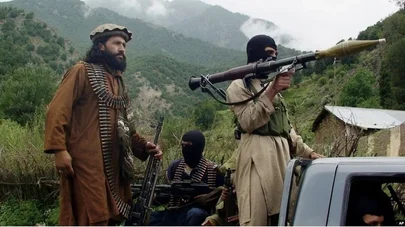

Terror threats from AF-Pak rise across the world
A new report by the United Nations Security Council (UNSC) says that the Taliban takeover in Afghanistan has “emboldened” the Tehrik-e-Taliban Pakistan (TTP) terror group due to which it has launched a spree of attacks in Pakistan.
The report says that the relocation of TTP cadre from the Af-Pak border at the request of Pakistan could become a regional threat if the TTP continues to get the patronage of the Taliban. Highlighting the eco-system that exists between various groups, the report says that TTP was being aided by Al-Qaeda Indian Subcontinent (AQIS).
Currently, most of TTP’s attacks have been directed at Pakistani security personnel. A concerned Islamabad has taken up the matter with Kabul but the Taliban government has flatly denied any involvement with the TTP. In fact various Taliban ministers have advised Pakistan to hold peaceful discussions with the TTP and resolve matters.
The UNSC report also pointed out that the East Turkistan Islamic Movement (ETIM) training camps in Kunar Province of Afghanistan were being used by the TTP fighters, who have unleashed a terrible war on Pakistani security forces.
The UNSC has highlighted that Afghanistan is being used as a sanctuary by various terror groups and these pose a threat to the region. It also underlines the fact that the groups and their fighters change their stripes to suit new situations and evade pressure.
The report says there was evidence that several global terror groups are using the TTP as cover to evade restrictions of the Afghan Taliban, adding that greater restrictions over such groups may push these to join the Islamic State of Khorasan (ISKP).
The report says that the numerical strength of the Al-Qaida central command in Afghanistan is between 30 to 60 members, while its fighters are estimated to be 400, reaching 2,000 with family members. The AQIS has approximately 200 fighters and intends to spread into Bangladesh, Kashmir, and Myanmar.
The report notes that the ISKP threat can extend upto Europe. It highlights the group’s high-profile attacks in Afghanistan against senior Taliban leaders. The report assessed that ISKP might pursue high-impact operations against Western countries.
The Indo-French Joint Military Exercise SHAKTI-VIII continues to strengthen operational interoperability and mutual cooperation between…
Prime Minister Narendra Modi attended the centenary celebrations of the revered Jain spiritual leader Acharya…
Prominent human rights activist Manzill Murshid anticipated that the upcoming election in Bangladesh will bring…
Iranian Foreign Minister, Seyed Abbas Araghchi, said on Saturday that President Donald Trump should put…
The national capital is hosting ten representatives from the American state of Montana, who are…
An earthquake of magnitude 6.0 struck the Philippines in the early hours of Saturday, as…